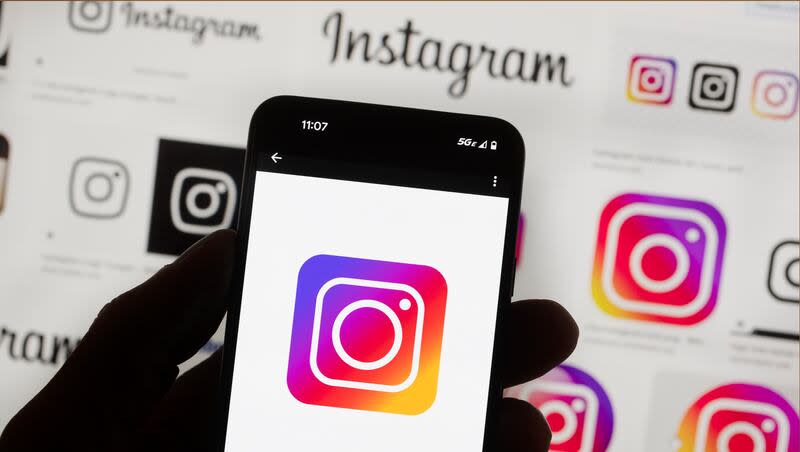Utah’s Big Tech bills in the 2024 session

- Oops!Something went wrong.Please try again later.
Gov. Spencer Cox signed the first bill of the legislative session on Jan. 19. The bill delayed the implementation date of Utah’s unique social media law from March to October.
Throughout the rest of the session, lawmakers worked to amend the Social Media Regulation Act via two bills.
Cox has indicated he thinks these bills will protect children while withstanding legal scrutiny.
“I will say that these are still the strongest social media bills in the country right now,” Cox said. “And with the changes that have been implemented, so I feel really, really confident about what we’re doing and I do believe that it will help us withstand some of the judicial scrutiny that will be coming as we move forward with these cases.”
In addition to the social media bills, the Utah Legislature also passed legislation on pornography generated by artificial intelligence and filters on smartphones for kids.
Utah’s social media law
Sen. Mike McKell, R-Spanish Fork, and Rep. Jordan Teuscher, R-South Jordan, sponsored SB194, which made changes to the Social Media Act.
Under this bill, social media companies would be required to enable the maximum default privacy settings on Utah children’s accounts. They would have to verify the ages of their users and provide supervisory tools that a Utah minor could enable for a parent or guardian.
Social media companies would also be required to restrict Utah minors’ direct messaging capabilities. They’d only be able to message with connected accounts.
Teuscher and Sen. Kirk A. Cullimore, R-Draper, sponsored HB464, which established a private right of action and provided social media companies with an affirmative defense. The bill makes it so Utah children and their parents can bring a private right of action forward. The person bringing forward the action would need to demonstrate a child was harmed directly by “excessive use of algorithmically curated social media.”
It also establishes an affirmative defense for social media companies if they can show that they limited use of the algorithmically curated content on a child’s account to three hours and a parent or guardian consented to the child account holder using the service, among other measures.
The bills rolled back some of the initial measures included in the Social Media Regulation Act. Utah was sued by NetChoice and F.I.R.E. over the initial restrictions.
Artificial intelligence pornography
Sen. Karen Kwan, D-West Valley City, sponsored SB66, which amended the definition of a counterfeit intimate image.
The bill only added one word to existing Utah code: “generated.” This word broadens the law to ensure that it includes pornography generated by artificial intelligence.
In a committee meeting during the session, Kwan said the addition of the word is intended to “close a potential loophole with all the new AI technology.”
Phone filters
Sen. Todd Weiler, R-Woods Cross, sponsored SB104 this session. Previously, the Utah Legislature passed a bill that would have required smartphone companies to put filters on children’s phones to block them from seeing obscene content. The bill’s date of implementation hinged on at least five other states passing a similar bill.
Weiler said that did not happen yet, but the bill would set an implementation date. Since it’s passed, as long as Cox signs it, it will go into effect on Jan. 1, 2025.
The filter would prevent children from accessing obscene material via Internet browsers or search engines. Adults would be able to disable and reactivate the filter. The bill also grants the attorney general powers to bring civil actions against manufacturers which do not comply with the bill.
Contributing: Bridger Beal-Cvetko
